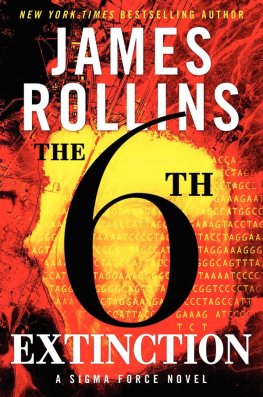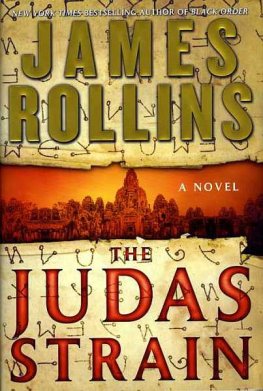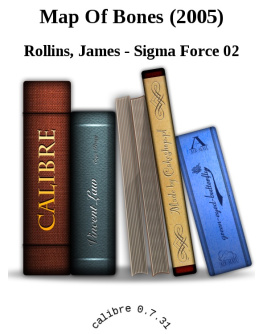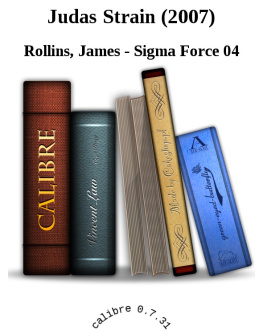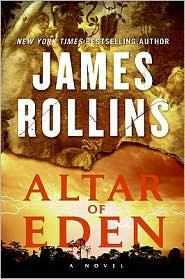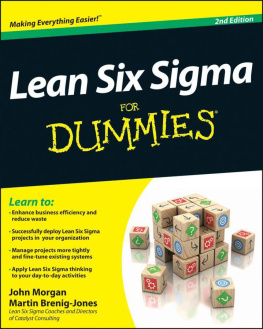James Rollins
The 6th Extinction
To David,
Who keeps me both grounded and flying high not an easy feat!
Extinction is the rule. Survival is the exception.
CARL SAGAN,
THE VARIETIES OF SCIENTIFIC EXPERIENCE (2007)
So many folks have their fingerprints all over this book. I appreciate all their help, criticism, and encouragement. First, I must thank my first readers, my first editors, and some of my best friends: Sally Anne Barnes, Chris Crowe, Lee Garrett, Jane ORiva, Denny Grayson, Leonard Little, Scott Smith, Judy Prey, Will Murray, Caroline Williams, John Keese, Christian Riley, Tod Todd, Chris Smith, and Amy Rogers. And as always, a special thanks to Steve Prey for the great map and to Cherei McCarter for all the cool tidbits that pop in my e-mail box! To David Sylvian for accomplishing everything and anything asked of him and for making sure I put my best digital foot forward at all times! To everyone at HarperCollins for always having my back, especially Michael Morrison, Liate Stehlik, Danielle Bartlett, Kaitlyn Kennedy, Josh Marwell, Lynn Grady, Richard Aquan, Tom Egner, Shawn Nicholls, and Ana Maria Allessi. Last, of course, a special acknowledgment to the people instrumental to all levels of production: my editor, Lyssa Keusch, and her colleague Rebecca Lucash; and my agents, Russ Galen and Danny Baror (and his daughter Heather Baror). And as always, I must stress that any and all errors of fact or detail in this book, of which hopefully there are not too many, fall squarely on my own shoulders.

NOTES FROM THE HISTORICAL RECORD
Throughout history, knowledge rises and falls, ebbs and flows. What once was known is forgotten again, lost in time, sometimes for centuries, only to be rediscovered ages later.
Millennia ago, the ancient Maya studied the movement of stars and developed a calendar that has not lost a day in 2,500 years. It was an astronomical feat that would take many centuries to be repeated. During the height of the Byzantine Empire, warfare changed dramatically with the invention of Greek fire, an incendiary weapon that could not be put out by dousing it with water. The recipe for making this strange flammable concoction was lost by the tenth century and wouldnt be rediscovered until its closest counterpart, napalm, was created in the 1940s.
How did such knowledge become lost to antiquity? One example dates to the first or second century, when the legendary Library of Alexandria was burned to ashes. The library, founded in roughly 300 B.C. in Egypt, was said to have held over a million scrolls, a massive repository of knowledge like no other. It drew scholars from around the known world. The cause of its fiery destruction remains a mystery. Some blame Julius Caesar, who set fire to Alexandrias docks; others attribute its ruin to marauding Arab conquerors. Still, what is certain is that those flames incinerated a vast treasure-house of secrets, knowledge from across the ages, lost forever.
But some secrets refuse to be buried. Within these pages is a story of one of those dark mysteries, knowledge so dangerous that it could never be fully lost.
NOTES FROM THE SCIENTIFIC RECORD
Life on this planet has always been a balancing act a complex web of interconnectivity thats surprisingly fragile. Remove or even alter enough key components and that web begins to fray and fall apart.
Such a collapse or mass extinction has happened five times in our planets geological past. The first struck four hundred million years ago, when most marine life died off. The third event hit both land and sea at the end of the Permian Period, wiping out 90 percent of the worlds species, coming within a razors edge of ending all life on earth. The fifth and most recent extinction took out the dinosaurs, ushering in the era of mammals and altering the world forever.
How close are we to seeing such an event happen again? Some scientists believe were already there, neck-deep in a sixth mass extinction. Every hour, three more species go extinct, totaling over thirty thousand a year. Worst of all, the rate of this die-off is continually rising. At this very moment, nearly half of all amphibians, a quarter of all mammals, and a third of all reefs balance at the edge of extinction. Even a third of all conifer trees teeter at that brink.
Why is this happening? In the past, such massive die-offs had been triggered by sudden changes in global climate or shifts in plate tectonics, or in the case of the dinosaurs, possibly even an asteroid strike. Yet most scientists believe this current crisis has a simpler explanation: humans. Through our trampling of the environment and rise in pollution, mankind has been the driving force behind the loss of most species. According to a report by Duke University released in May 2014, human activity has driven species into extinction at the rate a thousandfold faster than before the arrival of modern man.
But what is less well known concerns a new danger to all life on earth, one that has risen out of the ancient past and threatens to accelerate this current die-off, to possibly push us beyond the brink, to take us to the point of apocalypse.
And not only is that threat very real its rising right now out of our own backyards.
December 27, 1832Aboard the HMS
BeagleWe should have heeded the blood
Charles Darwin stared down at the words he had scrawled in black ink on the white pages of his journal, but all he saw was crimson. Despite the glow of his small cabins oven, he shivered against a cold that iced the marrow of his bones a frigidity that he suspected would never fully melt away. He mouthed a silent prayer, remembering how his father had urged him to study for the clergy after he had dropped out of medical school.
Perhaps I should have listened.
Instead, he had been lured astray by the appeal of foreign shores and new scientific discoveries. A year ago, almost to the day, he had accepted a position aboard the HMS Beagle as the ships naturalist. At the tender age of twenty-two, he had been ready to make a name for himself, to see the world. It was how he had ended up here now, with blood on his hands.
He stared around his cabin. Upon first coming aboard, he had been given private quarters in the ships chart room, a cramped space dominated by a large table in the middle that was pierced clean through by the trunk of the mizzenmast. He used every remaining free inch cabinets, bookshelves, even the washbasin as work space and a temporary museum for his collected specimens and samples. He had bones and fossils, teeth and shells, even stuffed or preserved specimens of unusual snakes, lizards, and birds. Near his elbow rested a board of pinned beetles of monstrous sizes with prominent horns like those of the African rhinoceros. Next to his inkwell stood a row of jars holding dried plants and seeds.
He stared forlornly across his collection what the unimaginative Captain FitzRoy called useless junk.
Perhaps I should have arranged to have this lot shipped back to England before the Beagle left Tierra del Fuego
But regretfully, like the rest of the ships crew, he had been too caught up in stories told by the savages of that archipelago: the native Fuegians of the Yaghan tribe. The tribesmen shared their legends of monsters, and gods, and wonders beyond imagination. It was such tales that had led the

